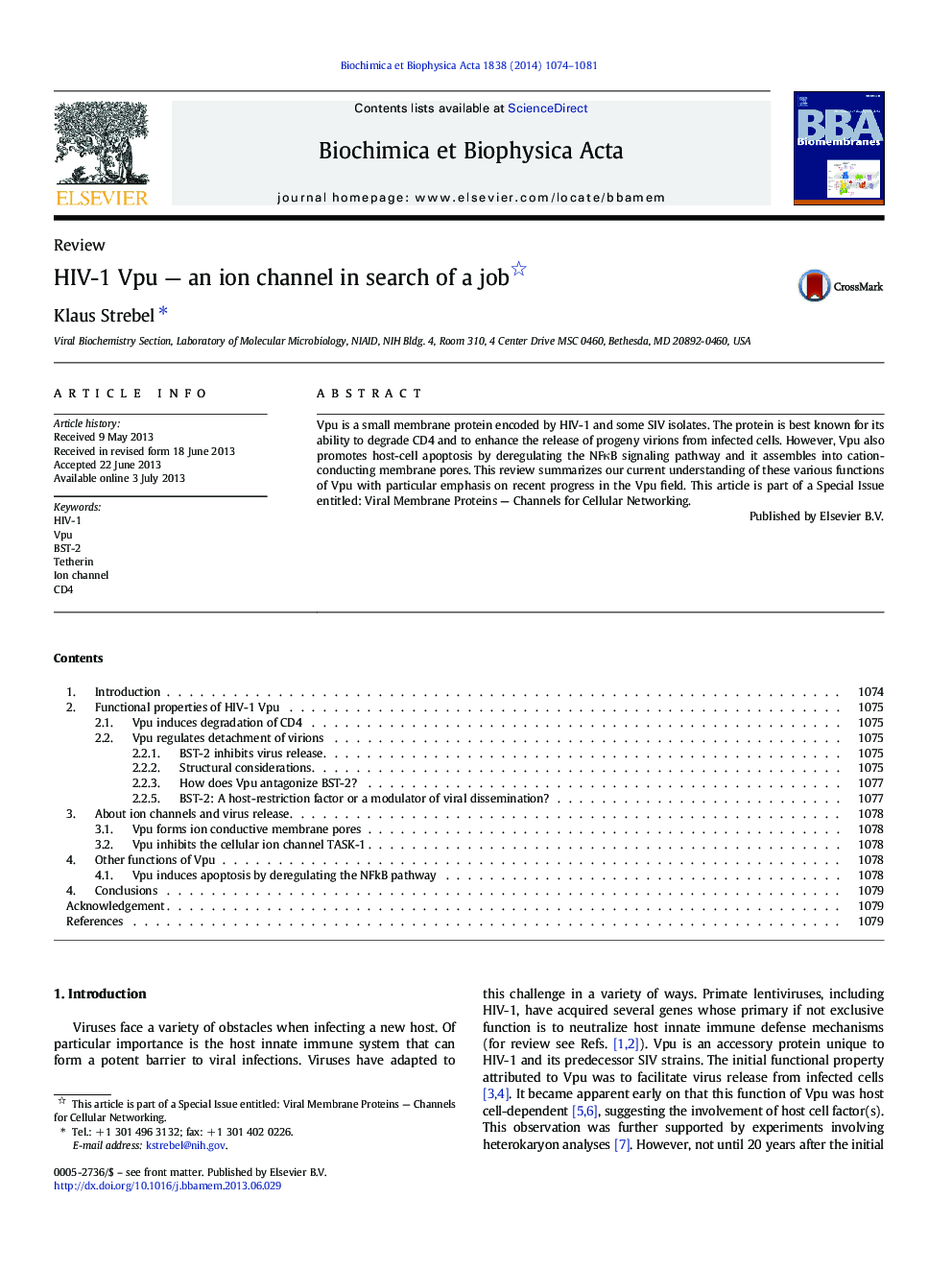| Article ID | Journal | Published Year | Pages | File Type |
|---|---|---|---|---|
| 1944155 | Biochimica et Biophysica Acta (BBA) - Biomembranes | 2014 | 8 Pages |
•Vpu is a transmembrane protein encoded by HIV-1 and some SIV isolates.•Vpu induces CD4 degradation and inactivates BST-2.•Vpu does not have enzymatic activity but acts as an adaptor molecule.•Vpu also induces apoptosis by deregulating the NFkB pathway.•Vpu forms ion channels but the significance for HIV replication remains unclear
Vpu is a small membrane protein encoded by HIV-1 and some SIV isolates. The protein is best known for its ability to degrade CD4 and to enhance the release of progeny virions from infected cells. However, Vpu also promotes host-cell apoptosis by deregulating the NFκB signaling pathway and it assembles into cation-conducting membrane pores. This review summarizes our current understanding of these various functions of Vpu with particular emphasis on recent progress in the Vpu field. This article is part of a Special Issue entitled: Viral Membrane Proteins — Channels for Cellular Networking.
Graphical abstractFigure optionsDownload full-size imageDownload high-quality image (164 K)Download as PowerPoint slide
